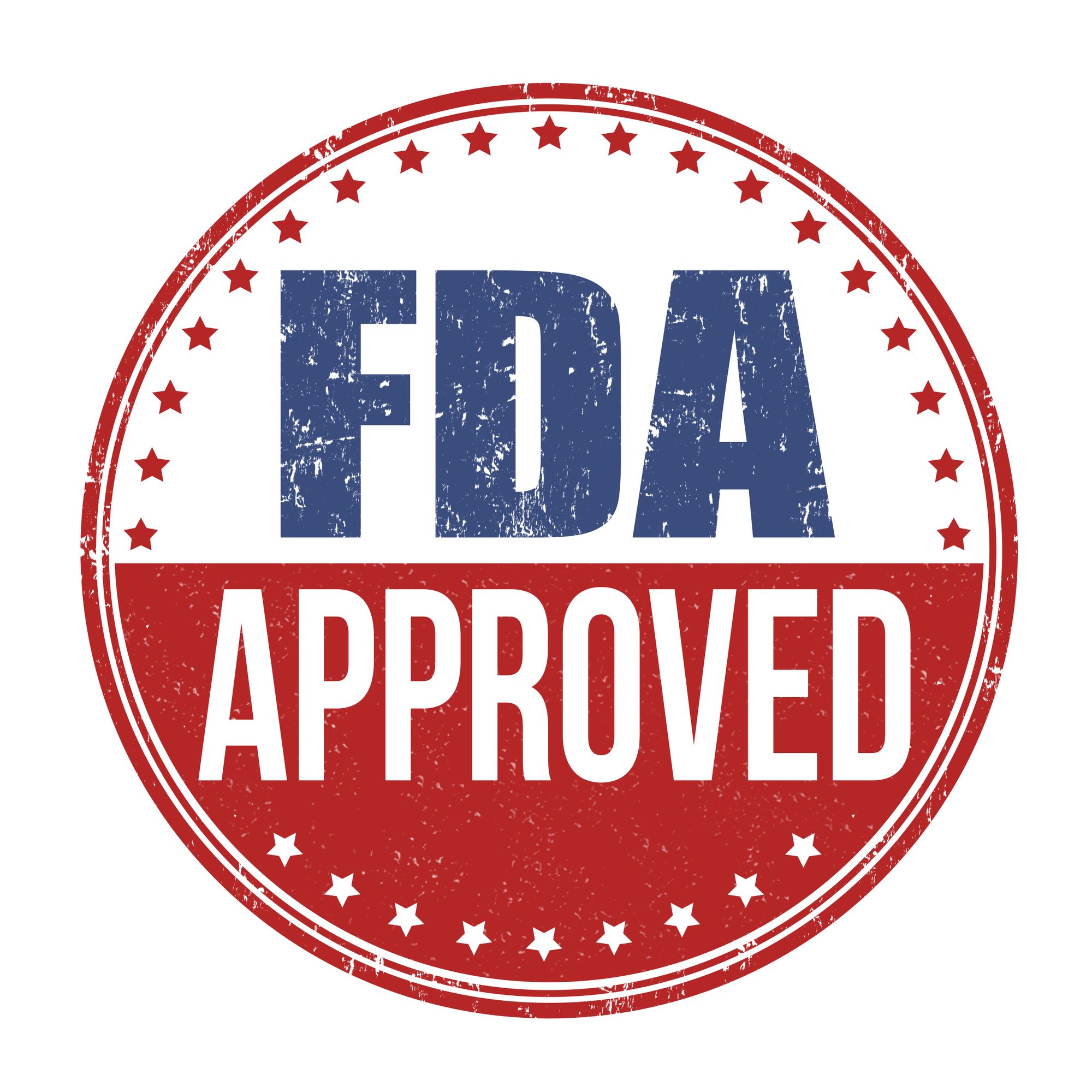
Non-Small Cell Lung Cancer
Latest News
Latest Videos

CME Content
More News
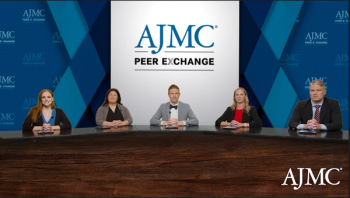
Panelists discuss how ALK inhibitors compare in terms of tolerability and best practices for managing associated toxicities.

Panelists discuss how currently available ALK inhibitors compare in terms of efficacy, durability of response, and central nervous system (CNS) penetration for metastatic non–small cell lung cancer treatment.

Telisotuzumab vedotin (Teliso-V) gained FDA approval as a targeted therapy for patients with advanced non–small cell lung cancer (NSCLC) with high c-Met overexpression, offering new hope.

Panelists discuss how clinical trial outcomes like CROWN and eXalt3 reflect real-world patient experiences and how these collective data have changed perspectives on frontline therapies for ALK+ non–small cell lung cancer (NSCLC).

Panelists discuss how matching-adjusted indirect comparisons (MAIC) of ALK inhibitors and the FDA approval of ensartinib in December 2024 influence frontline treatment selection for ALK+ non�–small cell lung cancer (NSCLC).

Panelists discuss how the 5-year CROWN trial data for lorlatinib have shaped the treatment paradigm for ALK+ metastatic non-small cell lung cancer (NSCLC), particularly regarding long-term survival, durability of response, and management of brain metastases.

Panelists discuss how they will explore optimizing care for patients with ALK-positive non-small cell lung cancer (ALK+ NSCLC) through treatment selection, sequencing strategies, and interpretation of emerging clinical data.
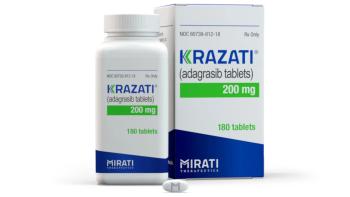
Phase 2 results reported at the European Lung Cancer Conference show a favorable signal for overall survival for the first-line treatment of KRAS-mutated non–small cell lung cancer (NSCLC). A phase 3 trial is enrolling now.
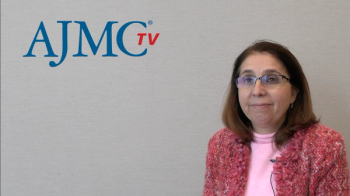
Ioana Bonta, MD, Georgia Cancer Specialists, discusses the evolving state of non-small cell lung cancer (NSCLC) treatments, their impact on patient outcomes, and the need to address ongoing disparities in these populations.
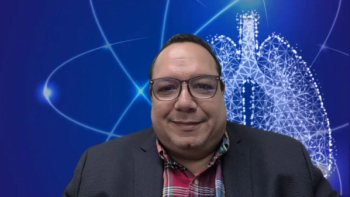
Edgardo S. Santos, MD, FACP, FASCO, emphasized the need to eliminate the stigma around smoking in lung cancer, highlighted the importance of early detection and discussed how advances in precision medicine, genomic studies, and targeted therapies have improved patient outcomes and reduced health care costs.

Edgardo S. Santos, MD, FACP, FASCO, discussed the barriers to precision medicine in lung cancer treatment, including patient concerns about technology understanding and insurance coverage, as well as the reliance on traditional tissue biopsies, emphasizing the benefits of combining liquid and tissue biopsies to improve treatment outcomes and clinical trial eligibility.

Edgardo S. Santos, MD, FACP, FASCO, highlighted how liquid biopsies are transforming lung cancer care by enabling faster, less invasive diagnostics, with key applications in early detection, predictive biomarker identification, treatment response monitoring, resistance mechanism assessment, and minimal residual disease detection.

Ryan Nguyen, DO, University of Illinois Chicago, highlights the importance of personalized care for patients who have non–small cell lung cancer (NSCLC) and the potential of artificial intelligence (AI) in oncology, while cautioning against its limitations, including the risk of unsupported recommendations.
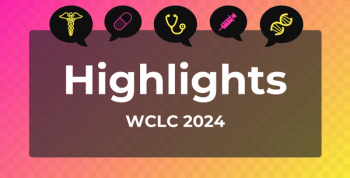
The 2024 World Conference on Lung Cancer (WCLC) took place in San Diego, California, from September 7 to 10, 2024.

Ryan Nguyen, DO, physician and researcher at the University of Illinois Chicago, emphasizes the transformative impact of immunotherapy in non–small cell lung cancer (NSCLC) and the need for precise biomarkers and equitable access to advanced treatments through systemic testing protocols.
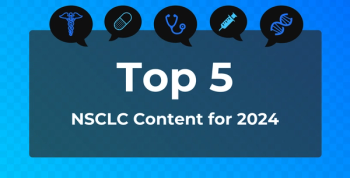
Our top content for the year highlight many challenges the field of non–small cell lung cancer (NSCLC) encountered, with data showing both setbacks in clinical trial results and advancements in screening recommendations for at-risk patients.

The FDA has approved ensartinib in adult patients with anaplastic lymphoma kinase (ALK)–positive locally advanced or metastatic non–small cell lung cancer (NSCLC) naive to ALK treatment.

Subcutaneous amivantamab joins a growing list of drugs receiving complete response letters due to manufacturing facility issues.

The investigational oral HER2-specific tyrosine kinase inhibitor would address an unmet need in non–small cell lung cancer.

To conclude our interview with Joshua K. Sabari, MD, which focused on the approval of amivantamab plus lazertinib in the first line, he looks ahead to potential uses that could help to overcome treatment resistance in non–small cell lung cancer.

Payers want to make sure patients are getting biopsies done so they can get on the right therapies, said Bhuvana Sagar, MD, Oncology Consultants.

The accelerated approval was based on the results of the eNRGy trial of 64 patients with NRG1-positive non–small cell lung cancer and 30 patients with NRG1-positive pancreatic adenocarcinoma.

Divya Gupta, MD, assistant professor at the Northwestern University Feinberg School of Medicine, emphasized the transformative role of biomarker-driven therapies in advancing non–small cell lung cancer (NSCLC) treatment and highlighted the critical importance of multidisciplinary collaboration.

Investigators were seeking clarification on optimal sequencing of the immune checkpoint inhibitor atezolizumab following treatment failure and disease progression after receipt of nivolumab and pembrolizumab.

Divya Gupta, MD, assistant professor at Feinberg School of Medicine at Northwestern University, discussed the potential of using circulating tumor DNA and minimal residual disease (MRD) assays for personalized treatment in non–small cell lung cancer (NSCLC), while emphasizing the unmet need for effective second-line therapies for patients without driver mutations.
